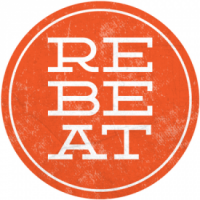It Was 50 Years Ago Today: “Love is a Hurtin’ Thing” by Lou Rawls
November 15, 1966
“Love is a Hurtin’ Thing” by Lou Rawls
#1 on the Billboard Hot Rhythm and Blues Singles chart, November 12-18, 1966
 By the time Lou Rawls earned his first big hit in 1966, he was on his second life and his third career — or fourth, if you count acting roles on TV shows like The Big Country and 77 Sunset Strip earlier in the decade. Like virtually every other soul singer of the era, he started out in gospel.
By the time Lou Rawls earned his first big hit in 1966, he was on his second life and his third career — or fourth, if you count acting roles on TV shows like The Big Country and 77 Sunset Strip earlier in the decade. Like virtually every other soul singer of the era, he started out in gospel.
In the early ’50s, Rawls replaced childhood friend Sam Cooke in renowned gospel group the Highway QC’s when Cooke left to join the Soul Stirrers. Later in the decade, the pair reunited to sing the Lord’s praises as members of the Pilgrim Travelers.
It was when touring with the Travelers, however, that Rawls’ first life ended in a car crash. Declared legally dead en route to the hospital, he entered a coma for nearly a week and would ultimately spend a year convalescing. Once he had recovered, Rawls decided to leave gospel for the secular music business.
In 1962, the same year he added his distinctive backing vocals to Cooke’s “Bring It On Home to Me,” Rawls signed to Capitol Records and released his first album, Stormy Monday. But rather than join Cooke in pop music and the emerging genre of soul, Rawls turned his silken baritone to jazz.
As well suited as Rawls’ precise phrasing and refined image were to jazz, there was no arguing that it wasn’t quite as lucrative as soul music. In response, Rawls yet again swapped genres, transitioning into soul on his Live!, his first gold record, and going full throttle on the aptly named Soulin’, both in 1966. The latter album yielded Rawls’ first hit, and the song that would remain his signature tune for a decade.
https://www.youtube.com/watch?v=vP8lqM7nx2I
Rawls’ jazzman sophistication bleeds through “Love is a Hurtin’ Thing” from his polished vocal control and satiny warmth, to the orchestral arrangement. “Hurtin’ Thing” is miles away from the gritty soul of Stax and Atlantic, or the crossover dance-pop of Motown, or the blues-based soul of Solomon Burke and Little Walter. It’s closer instead to the sort of soul-jazz that Brook Benton was honing at the same time, or perhaps even a less quirky version of Burt Bacharach’s mature pop.
 But while “Love is a Hurtin’ Thing” may not have many analogs on soul radio at the time, the strength of Rawls’ undeniable voice — once heard, never forgotten — propelled the song to the top of the R&B charts, as well as #13 on the Billboard Hot 100.
But while “Love is a Hurtin’ Thing” may not have many analogs on soul radio at the time, the strength of Rawls’ undeniable voice — once heard, never forgotten — propelled the song to the top of the R&B charts, as well as #13 on the Billboard Hot 100.
Rawls would stake out an individual presence on the soul scene for the next several years, bringing a touch of class to hits like 1967’s “Dead End Street,” 1969’s “Your Good Thing (Is About to End),” and 1971’s “Natural Man.”
In order to score his biggest success, however, Rawls would have to reinvent himself yet again. In 1976, he collaborated with Philly Soul pioneers Kenny Gamble and Leon Huff, whose taste for strings and horns jibed well with Rawls’ sophisticated sensibilities.
The disco-flavored “You’ll Never Find Another Love Like Mine” not only brought Rawls back into the limelight, it also earned him his second R&B #1 and fell one slot short of topping the pop charts as well.
While he wasn’t able to keep up that level of hits after the ’70s, he did record the first charging version of “Wind Beneath My Wings” in 1983. Shortly before his death in 2006, Rawls completed the circle of his life by releasing a pair of gospel albums (2001’s I’m Blessed and 2002’s Oh Happy Day), as well as the 2003 jazz tribute LP Rawls Sings Sinatra. Rawls mastered a variety of sounds throughout his career, but he’ll always be best remembered for his distinct brand of polished, full-throated soul.
It Was 50 Years Ago Today examines a song, album, movie, or book that was #1 on the charts exactly half a century ago.
